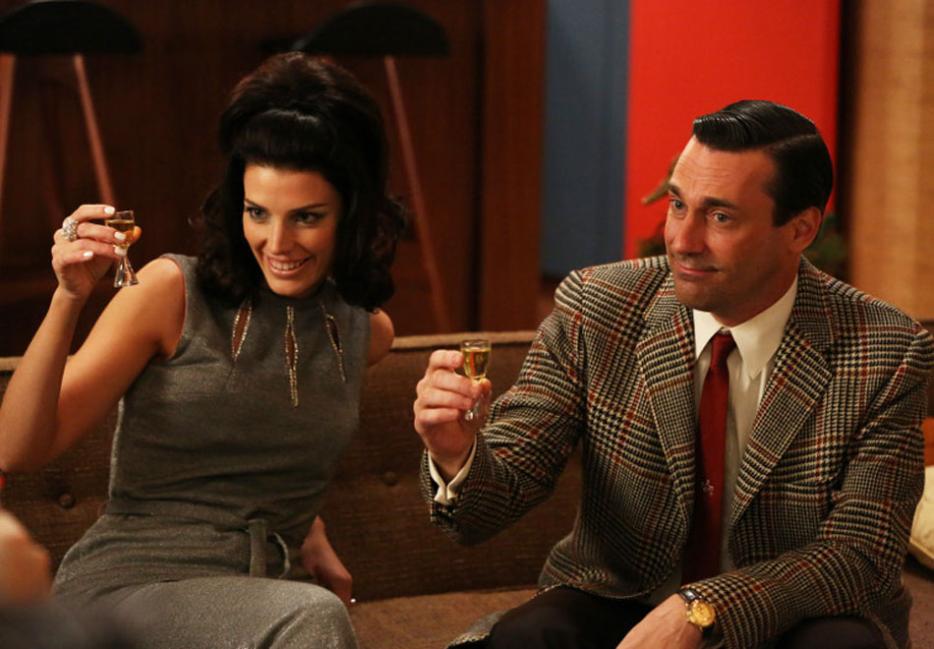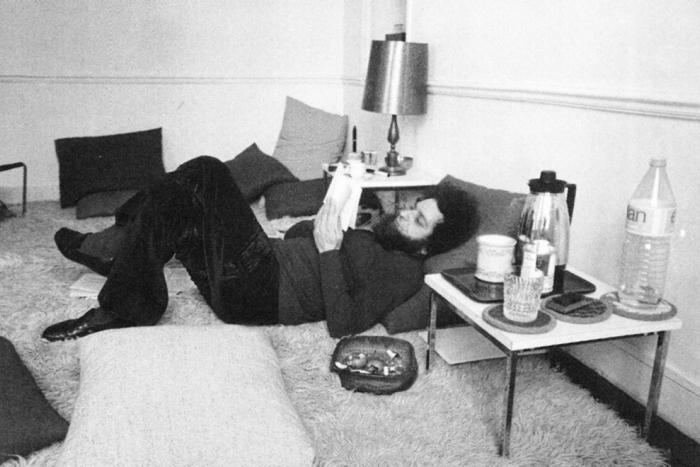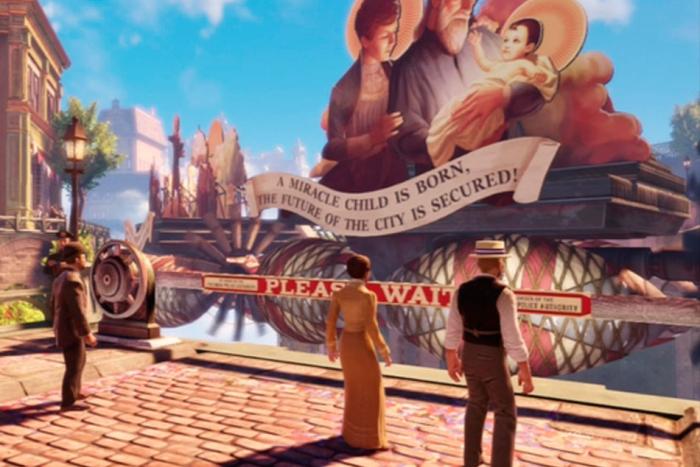The sight of Roger Sterling laid out on a psychiatrist’s couch isn’t the most striking image Mad Men has ever composed, but it’s maybe one of the most shocking. This is a show, after all, that literally chucked a psychiatrist’s work directly into the trash in one of its earliest scenes (and summarily dumped a psychologist as a main love interest in season four), and Roger is a man who guards his psyche with parrying daggers of wit and towering shields of vodka. Among the ad men of Sterling Cooper Draper Pryce (and even the new ad woman of Cutler, Gleason and Chaough), there is plenty of wondering about what the buying public might want, and plenty of pensive cigarettes inhaled while stewing over their own desires, but the idea of just coming out and telling someone what’s going on—well, it seems to go against the characters’ shared ethos as much as it does the show itself.
What Roger talks about, though, cuts right to the heart of Mad Men: He’s complaining, increasingly existentially, about the way nothing actually seems to change. We go through doorways, across bridges, and our experiences, in his view, don’t alter us at all; we just pick them up and drop them in our pocket like pennies, wandering along in a straight line until there are no more doors to be opened.
That seems a perfectly Roger kind of outlook—he of the curiously ageless gray hair, who walked into daddy’s firm and coasted by on his grace and wit, who hasn’t changed even as his power and influence has waned, almost literally preserving himself in alcohol. But it’s a frustration, or at least a question, that haunts the people of SCDP, battered but unmovable statues in the midst of America’s quintessentially tumultuous decade.
The timeframe is a useful synecdoche—monumental social upheaval plays mostly beyond the glass doors, impinging in brief fits, and even then only when there’s simply no other choice—but it’s our capacity for personal change that’s the thrust of the show. Superficially, of course, we’ve seen huge changes in their lives: in this double-episode sixth-season premiere, Don lounges in Hawaii with his now soap-opera-starring, former-secretary wife; Peggy lays down the law as the boss at her new ad firm; the all-but-forgotten Betty leaves her palatial home with Henry to go searching through slummy Greenwich Village; and the rest of the SCDP gang snaps pictures on the stairway that connects their newly two-story office.
Plus ça change. Don’s gentle tap on the door of his downstairs neighbour echoes with the thud of crushing inevitability, and if we’re starting to feel Roger’s exasperation with the stretching sameness of life, well, so is Don. In this woman’s bed, he makes a wistful and obviously doomed New Year’s resolution to not do this anymore—as if he could do anything but.
Fittingly, this yearning and its failure comes up again and again throughout Mad Men’s previous five seasons; equally fittingly, considering that change is always just a moment away, we’re not given any definitive answers. Don’s existential crisis in season four had him swaying back and forth: his marriage over, he wavered between rough sex with prostitutes, drunken oblivion with a secretary and an open, startlingly mature relationship with a woman who might have been his equal. It ended, of course, with him marrying a black-haired spiritual doppelgänger of his old wife, albeit one who, we learn, has more independent ambitions.
It goes well beyond Don, though. Just last season, Roger’s fading relevance drove him away from his second marriage and towards LSD, and though he had an uncharacteristic moment of self-analyzing honesty, he was still merely escaping into some other reality. Joan found herself a place at the boardroom table, by using the subservient but cunning femininity that had her merely circling it before. Peggy stands up to Don and finds herself a new job, where she puts all of Don’s teaching and lessons into practice. Pete tried to escape the emptiness of his suburban dream and landed in an affair, electrically erased in his other half’s mind, that did just as little to fill the wounded hole in his soul. Lane tried to slough off his meek numeracy with romantic daydreams and embezzled money, and ended up hanging from the roof, his demise all but assured because, according to his wife, Don and company tried to fill his head with unnatural ambition.
Looming over all of this, of course, and tracing all the way back to the premiere in the form of an engraved golden Army service lighter, is the fact that Don has changed: he is really Dick Whitman, an identity that he left around the neck of his dead lieutenant in Korea. But what’s in a name? Would Dick be any less driven, any less haunted, any more eager to escape his past than Don? In his pitch to the Royal Hawaiian—the pitch that only his prospective clients (and dear, crude, now-bearded Stan) seemed to recognize had more than a hint of oblivion in it, as though change necessarily involves pure destruction—Don describes Hawaii as feeling different without missing anything, and shows a photo of a theoretical vacationer who has shed his clothes on the beach and wandered into the water that’s the same temperature as he is. Does a new skin change either man?
The first time we ever see Don pitch a client, he’s across the table from Lucky Strike cigarettes. They are faced with a challenge: they can no longer sell cigarettes with unprovable health claims. Don’s fix, his change in strategy, is no change at all—he simply tells them to sell the fact their tobacco is toasted (which all tobacco is). The reason this will work, he explains, is because it tells people that everything is okay as it is: there’s no reason for Lucky Strike, or its customers, to do anything differently. Six seasons into a never-ending series of variations on the same personal crises, Mad Men has shown us that we are definitely not okay as we are. But can we ever become any different?
--
Find Hazlitt on Facebook / Follow us on Twitter
Photo credit: Michael Yarish/AMC






